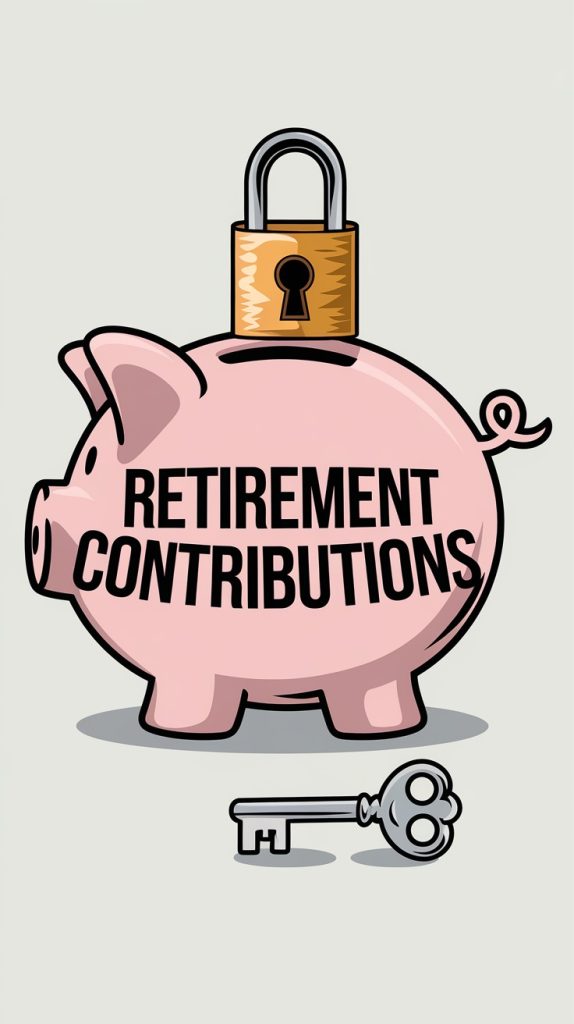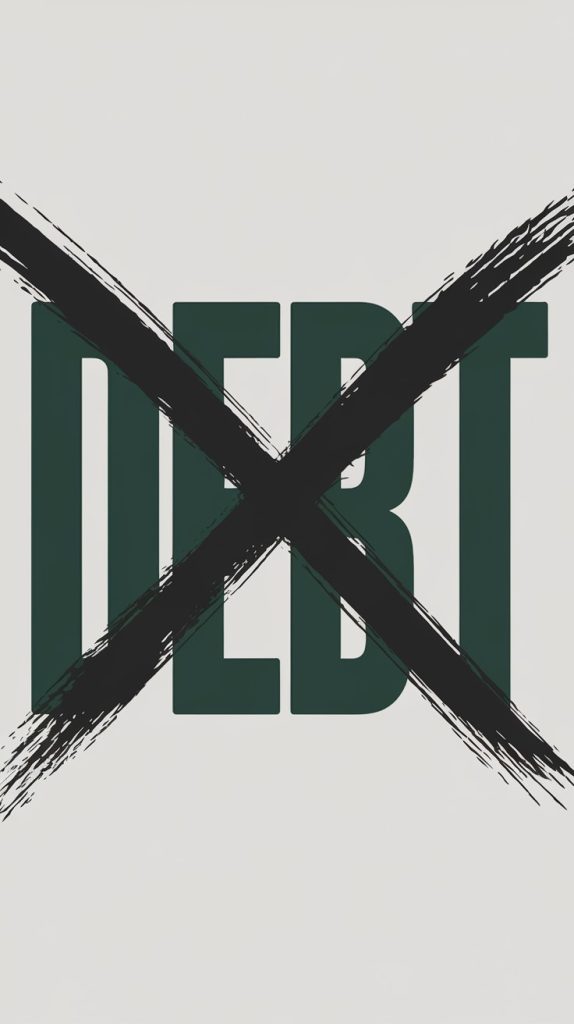Money Tips & Advice for Your 30’s
Your 30s are a powerful decade to focus on your long term financial goals, making money and focusing on your building wealth.
By now, you’ve likely laid down the financial basics for your 20s – budgeting, saving, and paying off early debt (hopefully!).
But even if you haven’t done so yet, this is the time to really get serious and take your financial goals to the next level.
Whether you’re growing your career, starting a business, buying a home, or raising a family, the financial moves you make in this stage of life can set you up for true long-term success.
In this article, I’ll walk through the most important long term financial goals to focus on in your 30s so you can build real wealth and enter your 40s with confidence and stability.
There is no time to waste, let’s take action and start now.
Disclosure: Our website is reader-supported. If you purchase any service through our partner links, we may earn a commission at no extra cost to you.
Table of Contents
1. Revisit Your Investments
If you got a head start on investing in your 20s, whether it was through a 401k, Roth IRA, or just a simple brokerage account – great job.
But don’t set it and forget it!
Now is the perfect time to take a closer look at your portfolio and make sure it still aligns with your long term financial goals, income, and risk tolerance.
A little fine-tuning now can make a big difference down the road.
If you can afford to invest more per paycheck, you definitely should take advantage of it and do it.
Action Items:
- Don’t leave money on the table! Maximize your 401k contributions and employer match.
- Diversify your holdings – consider index funds, real estate, etc.
2. Level Up In Your Career
By the time you hit your 30s, you probably have a better idea of what you’re good at, what you enjoy doing and what kind of work you want to be doing.
This is the time to take those skills and turn them into serious income.
Whether that means moving up in your current job or switching careers completely, now’s the time to be intentional about your growth.
For most people, your career is likely your biggest wealth-building tool.
Don’t settle for being underpaid or undervalued. Keep learning, stay competitive, and make sure your paycheck reflects the value you bring.
Action Items:
- Ask for a raise or promotion based on your experience and performance.
- Consider switching jobs if it leads to better pay and growth.

3. Keep Your Spending in Check
Once you’re in your 30s, you’ve probably figured out more about yourself and what really matters.
That makes it a great time to be more thoughtful about where your money goes. Focus on the stuff that really adds to your life and start letting go of the things that don’t.
It’s easy to start spending more when you’re making more but don’t let your income growth turn into lifestyle creep.
Why? Because making more money doesn’t automatically mean you need to spend more.
It’s important to note, being mindful about your spending isn’t about being super strict or cheap just to be cheap.
It’s about making sure your money is actually going towards what you care about and what you want to achieve.
Action Items:
- Review your monthly budget and cut any unnecessary spending.
- Set spending limits for non-essentials and stick to them.
4. Review and Grow Your Side Income
If you started a side hustle in your 20s, your 30s are the time to double down.
Whether you’re freelancing, running an online shop like selling on Etsy, or offering a service like consulting or coaching.
The goal now is to grow that income stream in a way that supports your long term financial goals and dreams.
Not every side hustle is worth the time, so this is your chance to figure out what’s really paying off and what’s not.
Then use your time and energy to scale what’s working.
Action Items:
- Analyze which side hustle efforts gave you the best return in time and money.
- Reinvest the money you make from your side hustle into savings, investments, or growing your business.

5. Evaluate Your Budget
Your lifestyle most likely looks different in your 30s compared to when you were in your 20s.
Your budget in your 30s should reflect how your life has evolved since your 20s.
Maybe you’ve changed jobs, moved, or taken on new responsibilities like starting a family.
Either way, now’s the time to realign your budget so it actually works for the life you’re living today.
This isn’t about cutting back entirely, especially if you have a family – it’s very challenging to do.
This is more about being intentional with your income, tracking what matters, and making sure your money is working for you.
Action Items:
- Adjust spending categories based on your current lifestyle like housing, family needs, or new financial goals.
- Use apps and tools to automate savings and track monthly expenses.
6. Start Saving for Family Life
At this point, you probably have a pretty good sense of what truly matters to you in life. And if that includes building a family and having kids, then you need to plan for it financially.
Looking ahead, if you have kids, the rising costs of college like tuition, housing, and everything else – can be a real challenge.
So, what’s a smart way to make sure your child gets the education they deserve?
It’s about setting long term financial goals in your 30s to start saving for their college fund.
When you’re ready to get going, definitely check out 529 plans. Investing in one is a really smart and tax-efficient way to save for your kids future college expenses.
Action Items:
- Start a savings fund for child-related expenses like daycare, healthcare, or education.
- Consider life insurance and a will to protect your growing family.
7. Work Toward Home Ownership
Your 20s might have been for renting (and still could be in pricey cities), but your 30s could be the time you really want and can achieve homeownership.
The big thing to remember? Don’t go overboard and buy more house than you really need.
It’s tempting to be in an expensive neighborhood, but not if it means you’re stretching your budget way too thin.
Instead, focus on what you can comfortably afford in an area that fits how you live.
If owning a home is on your mind, aiming to buy by your mid-30s gives you time to build up equity while still keeping some flexibility for the future.
For reference, a 30-year mortgage you take out at 35 years old could be completely paid off by the time you retire.
Action Items:
- Check and improve your credit score to qualify for better mortgage rates.
- Start saving for a down payment and closing costs.
- Research neighborhoods, loan types, and first-time buyer programs.

8. Pad Your Emergency Savings
Your 30s most likely adds more to your plate – more responsibilities and definitely more of those “out of nowhere” expenses.
That’s why it’s super important to build up your emergency fund during this time.
Whether it’s a surprise medical bill, you’re in between jobs, or something breaks at home, having a good chunk of cash set aside can stop you from getting into debt when life throws you a curveball.
If you got a head start on your emergency savings in your 20s, awesome!
Now’s the time to make it even stronger to match what you’re earning now, how you’re living, and what you’re responsible for.
Action Items:
- Check in on your emergency fund once a year and adjust as your lifestyle or expenses change.
9. Max Out Retirement Contributions
Your 30s are a prime time to start getting serious about retirement. Most money experts suggest aiming to save between 10% and 15% of your income for your future.
If you’re not quite there yet, this decade is the time to work towards that.
If you have a 401k through your job, check your current contribution rate and increase it if you can (it’s essentially free money if you have an employee match!).
If you’re already maxing it out or if your employer doesn’t offer one, then consider opening an IRA.
There are two types of IRAs to know about: a traditional IRA (which is tax-deductible now, but taxed when you withdraw later), and a Roth IRA (you pay taxes on contributions now, but your withdrawals in retirement are tax-free).
In both cases, your money grows tax-free while it’s in the account.
So the earlier you start, the more your investments can compound over time.
Action Items:
- Review your current retirement contributions and increase them if possible to move toward the 10–15% range.
- Open and fund an IRA if you don’t already have one or to add more to your 401k.

10. Manage Your High-Interest Debt
Managing debt wisely is a big part of your money strategy – no matter how old you are.
But when you hit your 30s, it’s time to really focus on getting rid of the debt that’s holding you back, especially those high-interest credit cards and student loans.
First things first, make a complete list of everything you owe.
Then, come up with a plan that actually works for you to tackle it, step by step.
If you’re still carrying a balance on your credit cards, make paying them off a top priority. Same goes for those student loans – now is the time to make some serious progress, maybe even pay them off completely.
For things like your mortgage, car loan, or home equity line, it’s worth checking if refinancing could save you money.
If interest rates are low, it can add up to some real savings over time.
And here’s a really important tip for paying off debt: always attack the debts with the highest interest rates first. It’s the quickest way to save money in the long run and keep your credit score healthy.
You can use Credit Karma to monitor your credit score. I like it because It’s free and makes it easy to get the information I need on my credit report.
Action Items:
- Organize all your debts and prioritize paying off the highest-interest balances first.
- Use free tools like Credit Karma to monitor your credit score and stay on track.

11. Review and Update Your Insurance Policies
Maybe you’re getting married, starting a family, or buying a home, so your insurance coverage should evolve too.
What worked in your 20s may no longer cut it. Now’s the time to make sure you’re properly protected, as well as your family.
If you don’t have a Life Insurance plan, I strongly encourage you to set this up and add your loved ones as beneficiaries to your plan.
Here’s a quick checklist of key insurance types to keep on your radar:
- Health & Dental – For covering medical expenses and regular care
- Life Insurance – If someone depends on your income
- Disability Insurance – To protect your income if you’re unable to work
- Auto Insurance – If you drive, make sure you have the right coverage
- Homeowners or Renters Insurance – To protect where you live and what’s inside it
Take a little time to review your policies and make updates as needed. You’ll thank yourself later if something unexpected comes up.
You can also look for ways to cut back on expenses, and reviewing your life insurance premiums is one area to consider.
Action Items:
- Review health, life, auto, and home/renter’s insurance to make sure your needs are covered.
- Shop around to compare options and consider increasing coverage if your responsibilities have grown.

12. Set Aside Money for Fun
Building real wealth isn’t just about saving every penny. It’s also about enjoying the life you’re working so hard to build.
In your 30s, it’s important to remember you should still be having fun. Make sure you budget for weekend getaways, hobbies, or treating yourself to something you love.
Just keep in mind, when it’s planned for, it’s not a splurge, it’s part of a balanced financial life.
Action Items:
- Create a “fun” budget for travel, hobbies, or treating yourself.
- Use cashback rewards or travel points.
Final Thoughts
Making money in your 30s isn’t just about working harder, it’s about working smarter.
By checking in on your investments, progressing in your career, being really thoughtful about where your money goes, and maybe even adding some extra ways to earn – you can build some serious momentum that’ll carry you through the years to come.
Just stay focused on your long term financial goals, keep at it consistently, and don’t stop moving forward.
More Reading About Financial Goals in Your 30s
- Financial Goals to Build Wealth in Your 20s
- 40 Must-Know Financial Terms for Beginners
- How to Lower your Life Insurance Premiums
- Roth IRA Stock Investing Tips to Build Wealth
My Favorite Tools
To help you reach your long term financial goals in your 30s, below are resources you can use to get started. Most are free to sign up and will support your money goals.


Leave a Reply